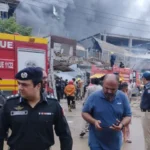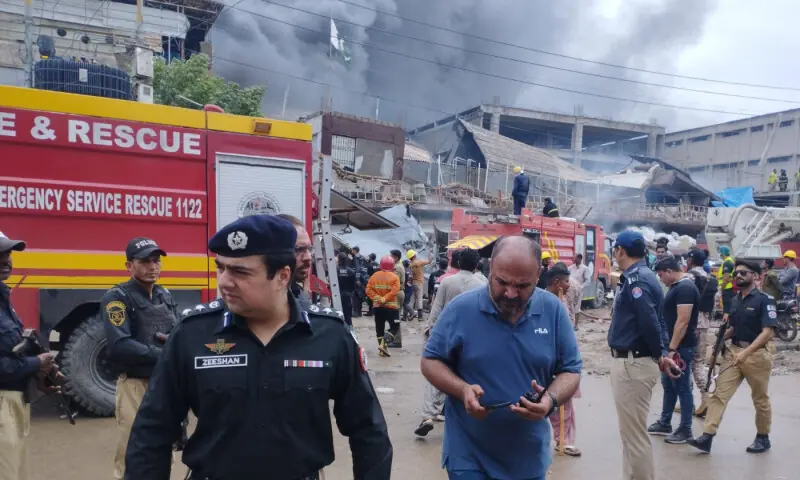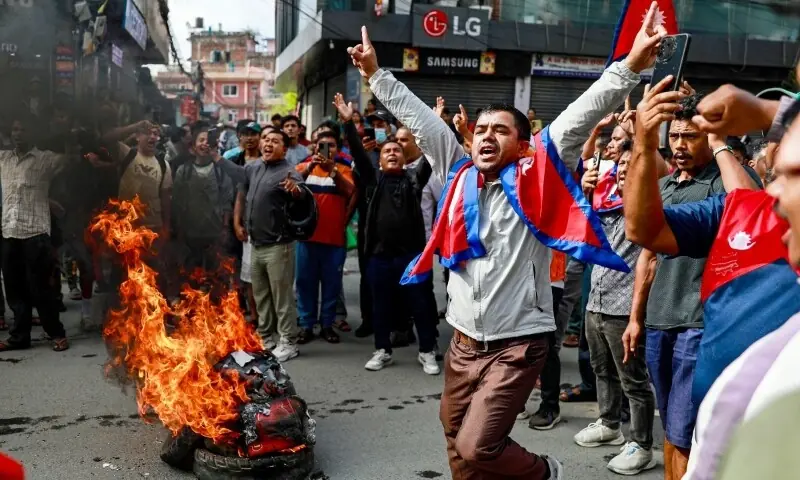A report published by the Commonwealth Human Rights Initiative (CHRI) found on Tuesday that national laws in many member countries of the Commonwealth severely prevent press freedom and unduly restrict the right to freedom of expression.
A press release stated that the ChRI, the Association of Journalists of the Commonwealth (CJA) and the Association of Lawyers of the Commonwealth (CLA) asked the Member States to urgently repeal “laws that criminalize the legitimate public discourse” and take decisive measures to protect workers from the media and the guards of violence and intimidation.
“The report Who controls the narrative? Legal restrictions on freedom of expression in Commonwealth He finds that the criminal provisions for the crimes of speech, including defamation and sedition, as well as the violations of national security laws, arbitrarily apply to intimidated and silence journalists, defenders of human rights and government critics, “said the press release.
“A key objective, the authors argue, must be decriminalized the laws of defamation in 41 countries of the Commonwealth, many of which allow long prison sentences.”
According to the press release, the report is based on the analysis of national legal frameworks and is based on testimonies of more than 30 senior journalists and 35 lawyers in Africa, Asia, America and the Caribbean, Europe and the Pacific regions.
The report concludes that the last inaction of the Commonwealth “has contributed to the serious and persistent challenges to the protection of freedom of expression and the rule of law in some member countries.”
The report urges the Secretariat and Member States to act resolutely, together with non -governmental organizations, to guarantee the observance of the 11 -point Commonwealth principles on freedom of expression and the role of the media in good governance adopted by the heads of government in Samoa.
“These principles of the media require that governments create a safe and enabling environment for media workers, and that they review and consider amending excessively restrictive national laws that inhibit freedom of expression both online and offline,” said the press release.
According to the press release, the report found that 213 journalists were killed in 19 countries of the Commonwealth between 2006 and 2023, and in 96 percent of cases, perpetrators were not taken to justice, according to UNESCO figures.
He also found that 41 countries of the Commonwealth maintain criminal sanctions by defamation; 48 retain law related to sedition; and 37 have legislation on blasphemy, according to the press release.
“The Commonwealth Ministerial Action Group (CMAG) is urged to fulfill its mandate to address the systematic limitations in civil society and the media,” reads the press release. “The CMAG must be renovated and supported by an envoy of the Commonwealth on freedom of expression.”
The ChRI, CJA and CLA urged member states to develop action plans with state and non-state actors to accelerate the repeal of criminal legislation for crimes and anti-state crimes in line with international best practices.
“Collaborate with civil society and international human rights organizations, including UNESCO, to monitor and support the implementation of the principles of the media,” the three agencies urged, requesting that the members prioritize the protection of civil and political rights.
As part of its recommendations, the report urged the following:
Strengthen legal frames
- Align national legal frameworks with international human rights standards. Any restriction to freedom of expression must comply with the International Law on Human Rights
- Ratify and implement international treaties, including the International Covenant on Civil and Political Rights (ICCPR)
- Promulgate robust law to information legislation
- Promulgate appropriate defenses to defamation laws.
Promote judicial independence, the guarantees of due process and access to justice
- Strengthen judicial independence
- Combat impunity
- Ensure access to effective remedies and that due process and guarantees of just judgment are clearly established in the law and are respected in practice
- Adopt Anti-Slapp measures (strategic demand against public participation)
Guarantee media pluralism and protect digital rights
- Establish and maintain regulatory organisms and supervision of independent media
- Promote media pluralism
- Refrain from imposing internet stops or communications or censorship of critical voices
- Support digital literacy
- Ensure online platforms that fulfill their human rights responsibilities
Protect journalists and foster vibrant civil society
- Protect journalists strengthening national legal frameworks to address journalists’ security and access to justice
- Create an enable environment for journalists and civil society organizations
- Establish safeguards against the surveillance and intimidation of journalists.
- Take special measures to protect groups of disproportionately directed, including women’s journalists
- Support the initiatives of global and regional civil society
- Protect freedom of association
Establish and strengthen the mechanisms of responsibility
- Strengthen the CMAG
- Strengthen and Resources properly the Secretariat of Commonwealth
- Establish a special envoy of Commonwealth on freedom of expression
- Commit to international and regional human rights institutions and mechanisms
- Join and interact with the coalition of freedom of media
“Too many countries of the Commonwealth continue to enforce the laws of the colonial era that criminalize the speech and silence of dissent, in clear violation of its international obligations,” said Sneh Aurora, director of the Commonwealth Human Rights initiative.
“The principles of the media adopted by [the] The heads of government in Samoa provide a timely opportunity for member states to take concrete measures, through the reform of the law and institutional safeguards, to protect freedom of expression and align national laws with international standards of human rights. “
William Horsley of the CJA said: “The almost complete failure of the Commonwealth countries to process and punish those responsible for the murders of more than 200 journalists in 20 years is shameful.
“This culture of impunity must be swept. A genuine commitment of the Commonwealth to protect the tellators of the truth from threats and reprisals would give the organization a new vital sense of purpose at a time when the concept of truth is under a fierce attack.”








